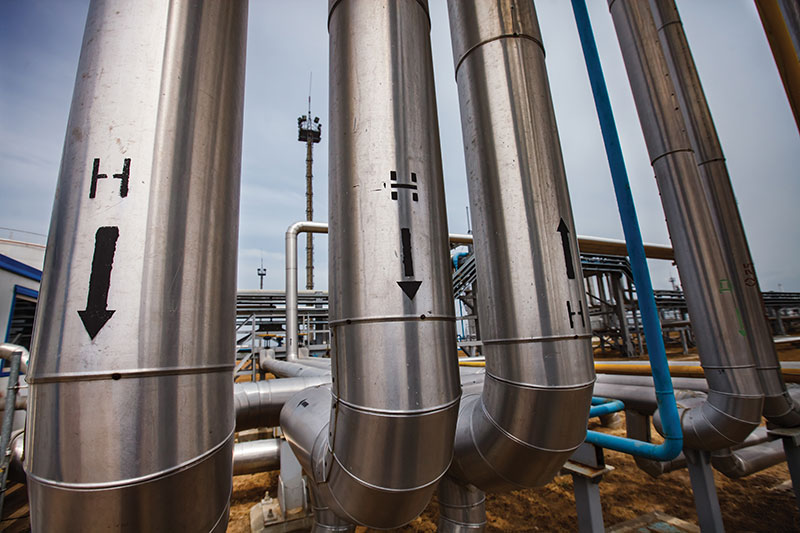Germany Planning Phased Intro of Hydrogen Pipeline Transport

FRANKFURT (Reuters) — Germany is set to take the first step towards using carbon-free hydrogen fuel in the transport sector, with the phasing in of the new energy source a boost to efforts to meet climate targets.
The government is expected to pass a bill on the matter at a cabinet meeting on Wednesday.
The agenda of the meeting and a draft law, both seen by Reuters, show initial focus will be on the switching of existing pipelines carrying hydrogen made from fossil fuels to carry "green" hydrogen, which is made from wind and solar energy via electrolysis, and the building of new green hydrogen pipelines.
It does not provide for the immediate absorption of green hydrogen into existing natural gas grids, which are regulated local monopolies.
Some operators of Germany's 550,000 km (314,754 miles) of gas transport grids have pushed for a quicker integration of systems, arguing this would ramp-up the use of green hydrogen and help refinance their green hydrogen investments via grid usage fees.
The draft explicitly calls the law a "transitory arrangement" that would allow a step-by-step approach to putting the country's 9-billion euro ($10.89 billion) hydrogen strategy into practice.
The ultimate integration of gas and hydrogen grids remained "a matter of many years," it said.
The law will have to be passed by parliament as part of a set of energy initiatives the government wants to complete before the summer break and a general election in September
The government is prioritizing green hydrogen, which is relatively expensive, for hard-to-electrify industries such as steelmaking and chemicals.
Germany industry consumes around 55 terawatt hours (TWh) of "grey" hydrogen made from fossil fuels each year, while all sectors, including home heating, use up to 1,000 TWh of natural gas.
Heating and transport could be electrified faster, for example via geothermal heat pumps and battery-fueled private passenger cars.
Related News
Related News

- Trump Aims to Revive 1,200-Mile Keystone XL Pipeline Despite Major Challenges
- ONEOK Agrees to Sell Interstate Gas Pipelines to DT Midstream for $1.2 Billion
- Energy Transfer Reaches FID on $2.7 Billion, 2.2 Bcf/d Permian Pipeline
- Boardwalk Approves 110-Mile, 1.16 Bcf/d Mississippi Kosci Junction Pipeline Project
- Kinder Morgan Approves $1.4 Billion Mississippi Crossing Project to Boost Southeast Gas Supply
- Tullow Oil on Track to Deliver $600 Million Free Cash Flow Over Next 2 Years
- GOP Lawmakers Slam New York for Blocking $500 Million Pipeline Project
- Energy Transfer Reaches FID on $2.7 Billion, 2.2 Bcf/d Permian Pipeline
- Polish Pipeline Operator Offers Firm Capacity to Transport Gas to Ukraine in 2025
- Macquarie, Dow Launch $2.4 Billion Gulf Coast Pipeline Infrastructure Partnership




Comments